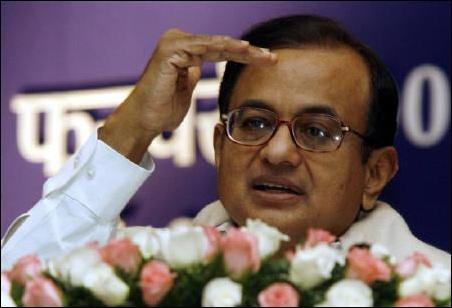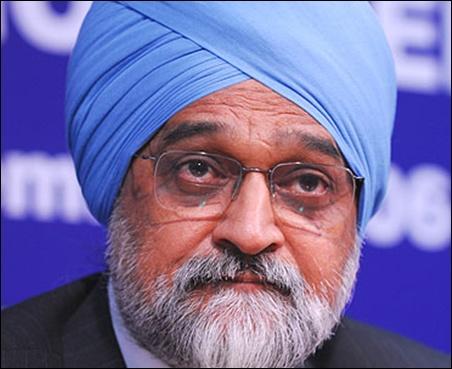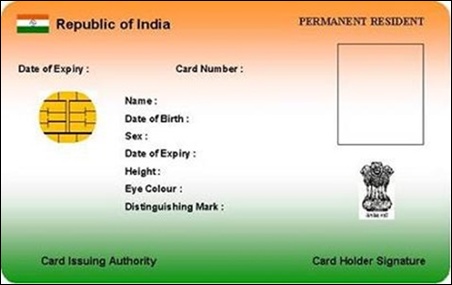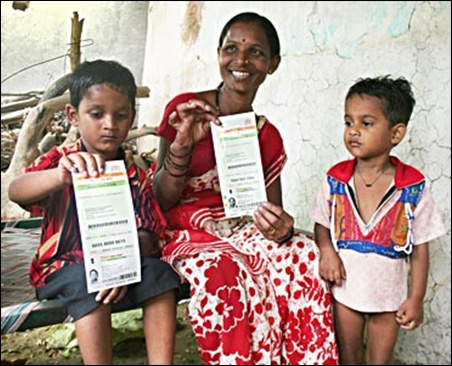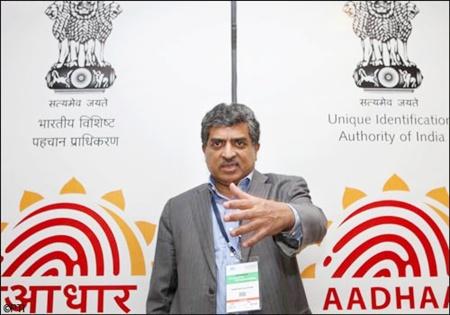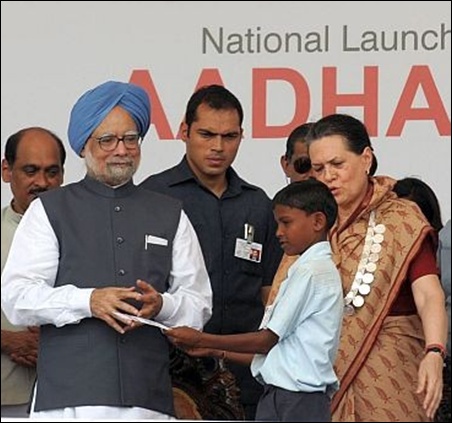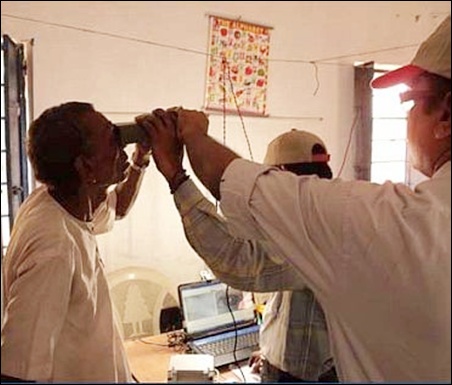 | « Back to article | Print this article |
No conflict over UIDAI project: Montek, Chidambaram
Home Minister P Chidambaram and Planning Commission Deputy Chairman Montek Singh Ahluwalia rejected reports that they were locked in a turf war over the ambitious UIDAI project to give every Indian resident a unique ID number Aadhar.
Chidambaram also said the government was mulling incorporating Aadhar numbers in the future resident Identity cards of the National Population Register (NPR), which falls under the Home Ministry.
Click NEXT to read on...
For Rediff Realtime news on UIDAI project, click here
No conflict over UIDAI project: Montek, Chidambaram
Ahluwalia said it would not matter if there is a "small overlap" between UIDAI's Aadhar project and NPR. UIDAI, headed by Nandan Nilekani, is under Planning Commission's ambit.
"There were some media reports about conflict between the Home Ministry and the UIDAI, but they are not true," Chidambaram said launching the distribution of smart cards under NPR for coastal villages in Tamil Nadu at Pattipulum village, near Mamallapuram, about 80 km from Chennai.
Chidambaram said Aadhar was a unique number while the smart card being issued under NPR would have comprehensive details.
Click NEXT to read on...
No conflict over UIDAI project: Montek, Chidambaram
Meanwhile, dispelling fears that the biometric technology being employed for the Aadhaar project is flawed, the UIDAI asserted that its system is reliable and can achieve the task of providing unique ID cards to the entire population of the country.
"Based on the analysis, the UIDAI confirms that the enrollment system has proven to be reliable, accurate and scalable to meet the nation's need of providing unique Aadhaar numbers to the entire population," the Unique Identification Authority of India (UIDAI) said.
Click NEXT to read on...
No conflict over UIDAI project: Montek, Chidambaram
Amid concerns raised by the Home Ministry about the quality of data collected by the UIDAI, which could be a security threat, the body released a report titled, 'The Role of Biometric technology in Aadhaar Enrollment', which confirms the high degree of accuracy of biometrics used in the UID project in the context of the large-scale enrollment across India.
Click NEXT to read on...
No conflict over UIDAI project: Montek, Chidambaram
The controversy is centred on the collection of biometric data of all residents.
While the Home Ministry has maintained that data collected by the Registrar General of India for the National Population Register should form the basis for issuance of unique ID cards, the Planning Commission has reposed faith in the data collected by the Nandan Nilekani-led UIDAI.
Click NEXT to read on...
No conflict over UIDAI project: Montek, Chidambaram
The Union Cabinet is likely to discuss the proposal for allowing the UIDAI to continue its work beyond the mandated 200 million enrollments on Tuesday.
According to the UIDAI study, it has been affirmed that the authority's biometric enrollment system is ready to handle high throughput of up to 10 lakh registrations per day and has 99.965 per cent accuracy in terms of duplication detection.
The system meets the country's requirements in terms of scale as well, with the database capable of accommodating 1.2 billion people.
Click NEXT to read on...
No conflict over UIDAI project: Montek, Chidambaram
"The UIDAI biometric system is processing over 100 trillion biometric person matches with a high degree of accuracy each day, capable of issuing 10 lakh Aadhaars daily.
This makes it not only one of the most accurate, but soon to be the largest biometric system in the world," UIDAI Chairman Nandan Nilekani said in a statement.
"This certainly gives us a high degree of confidence in executing this project of national importance with scale and accuracy," UIDAI Director General R S Sharma said.
